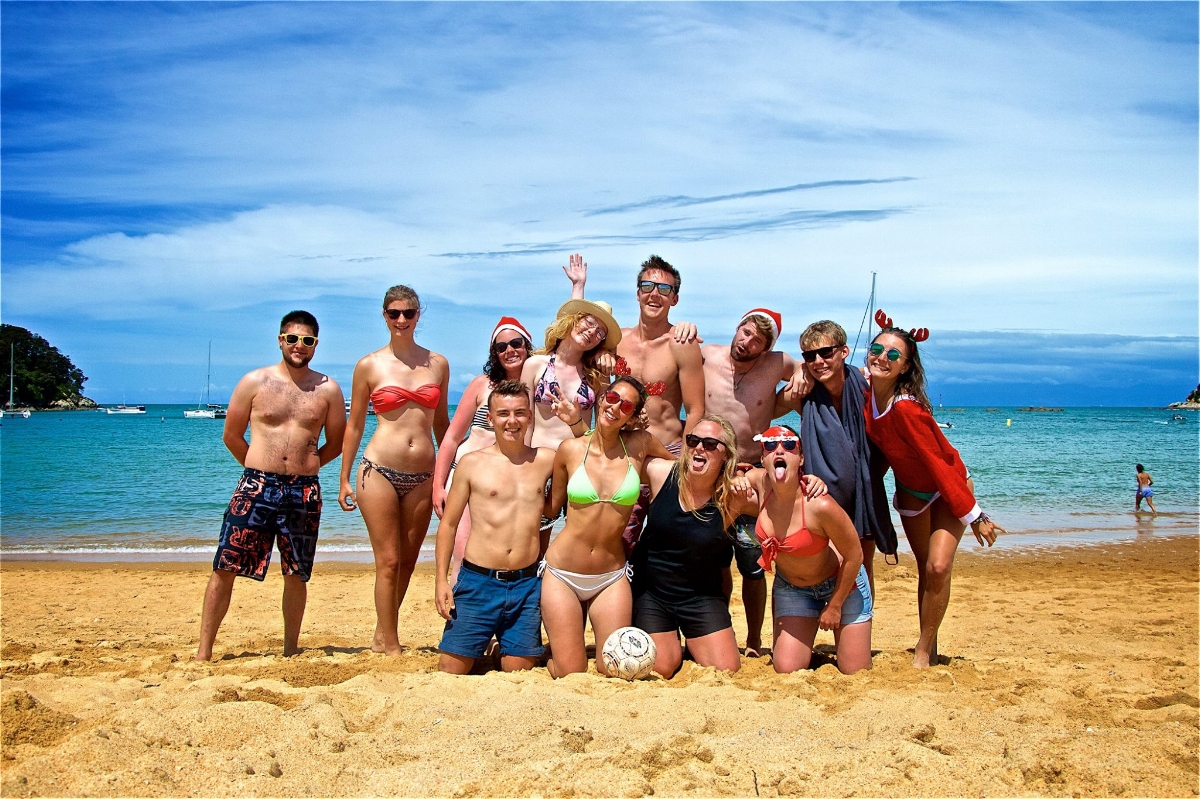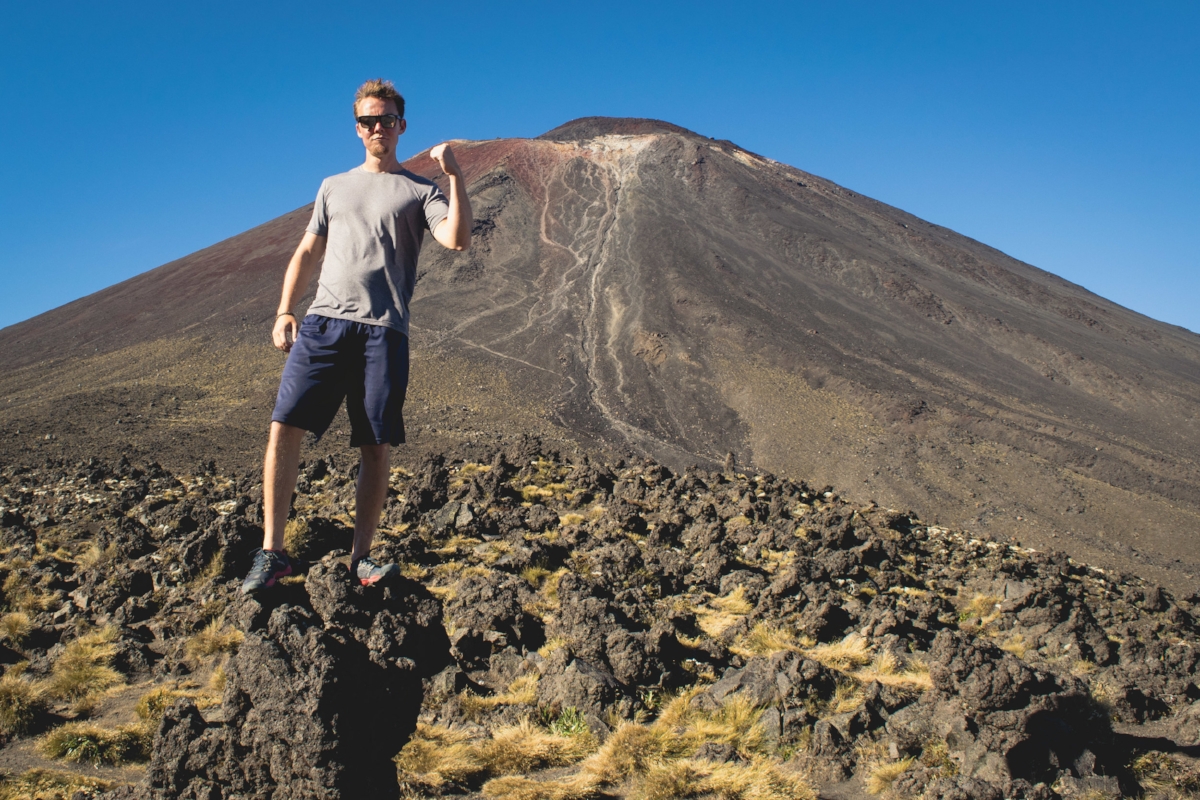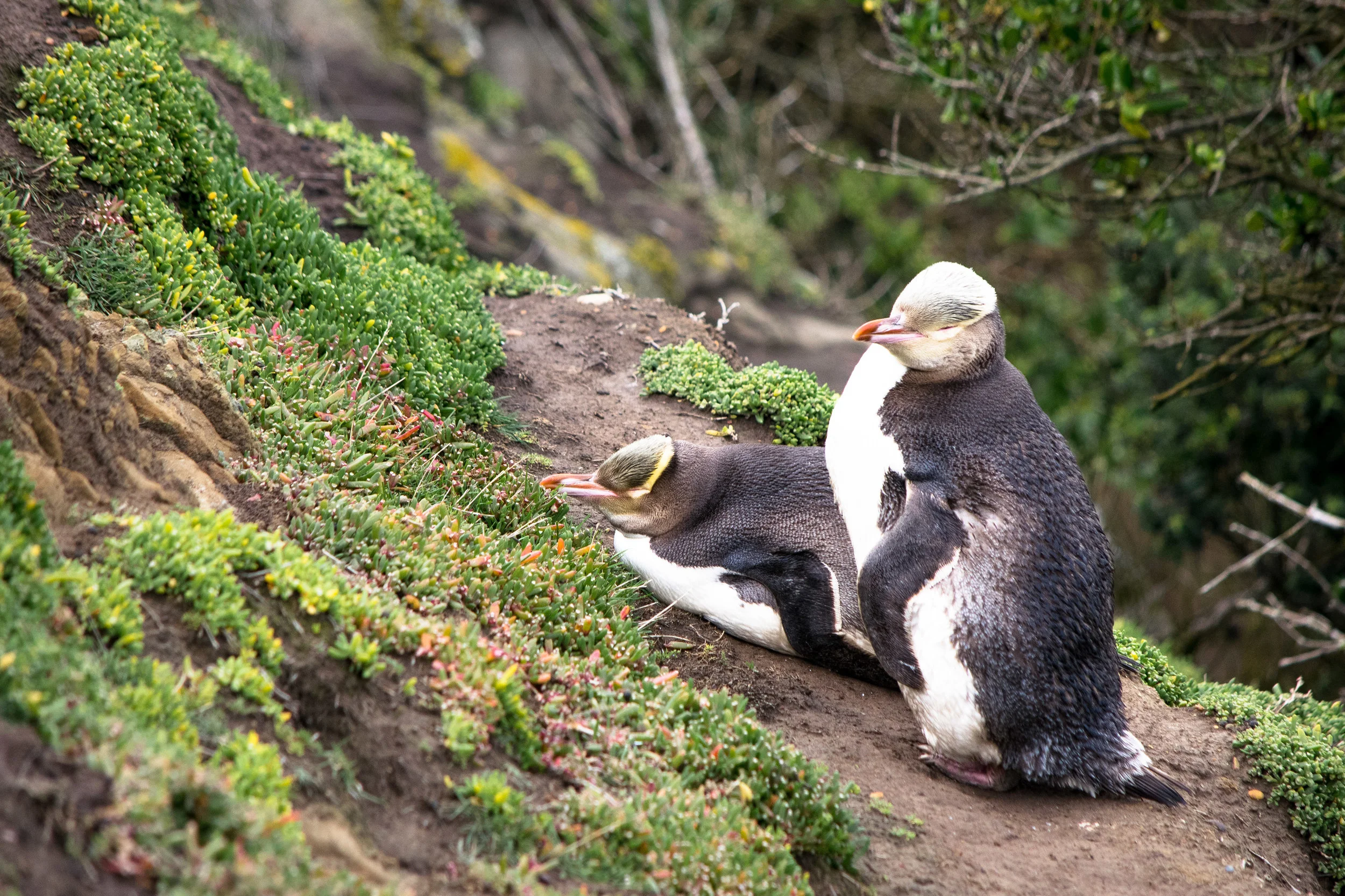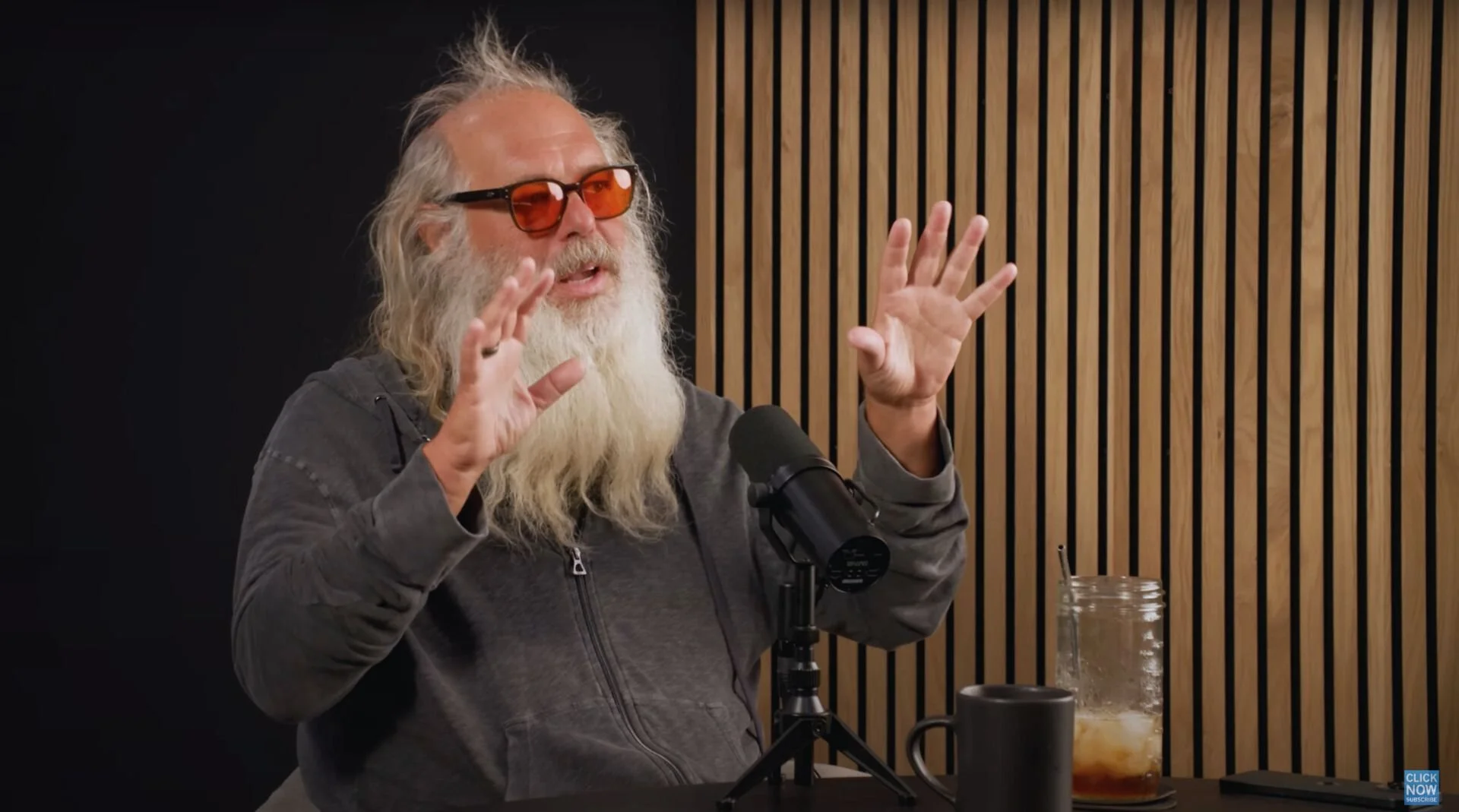How to Travel New Zealand on the Cheap
By Ethan Maurice | May 12, 2017
I just returned from 4.5 months in New Zealand. I added up all my expenses to find that I only spent $21 per day backpacking around both islands!
Among travelers, New Zealand is known as an expensive country, but approach it right, and it can be surprisingly affordable. Over 136 days, I spent $2,875 including flights and a week-long stopover in the Cook Islands.
In this post I'm going to lay it all out for you—what I did, why it was so cheap, and some tips for getting the best out of your own venture into "the land of the long white cloud."
What I did:
I spent most of my time in New Zealand living in hostels, exchanging 15-20 hours of my time per week for accommodation and a variety of other perks (meals, kayak rentals, mountain bike rentals, hot tub use, pool table use, laundry etc.). Just two or three hours most mornings of light housekeeping or groundskeeping work and the rest of the day was mine. I spent between ten days and five weeks at each work trade gig before moving on to experience somewhere else.
The free accommodation was the obvious major benefit of work trade, but what proved even better was the connection a bit of work forged between fellow travelers. I made friends from around the globe. Friends from France, Germany, Ireland, Scotland, England, Spain, Finland, Netherlands, Argentina, Croatia, New Zealand, and the United States, just to name a few.
I hung out with these people every day. We worked together. We ate together. We discussed culture and politics. We climbed mountains. We played football (soccer) on the beach. We lit late night bonfires. We piled ten of us into a single car. We jumped off cliffs into lakes. We danced in bars. I could go on, but you get the point: work trade was a wonderful way to meet people from all over to share these unbelievable travel experiences with.
I also enjoy venturing out on my own and often did so. I climbed volcanoes, mountain biked, and ran across towns, along rivers, and through forests. In one particularly incredible moment, I found myself squawking back at Kea (super intelligent alpine parrots) along the rim of the valley carved out by Fox Glacier as little specks of helicopters passed below us.
The highlight of my trip: a three-week long road trip around the southern half of the South Island with a wondrous, way too much fun bunch of French people. We lived this bohemian, nomadic existence for a couple weeks, always on the move, seeing things, playing cards, and drinking wine. The experience that stood out from the rest, though, was waking up at 3:45am to climb to the top of a mountain in Mt. Cook National Park to catch the sunrise, a picture of which sits atop this article.
My intention in going to New Zealand was to read lots of books and write for at least an hour every day, punctuating my literary pursuits with a couple hours of work trade, hanging out with people from all over, and when the opportunities arose, adventure. And for the most part, that's what I did—with the exception that the call away from work was a bit stronger than expected. I read 21 of the 38 books I intended to in those 4.5 months and wrote for at least an hour most days, but not every day.
Overall, it was a productive, beautiful, social existence spread across both islands of New Zealand. Periods of time spent deep in books and thought punctuated daily with a bit of work and serious fun.
Here's a map of everywhere I went in New Zealand:
And here are some pictures:
Oh, and I also tacked a relaxing week in the Cook Islands onto the end of my trip:
(And yes, it was included in the $2,875 I spent over the 4.5 months.)
How was traveling New Zealand so damn cheap?
1. Nearly free flights. Thanks to two travel credit card airline mileage bonuses, flights out from and returning to the United States cost a mere $263. I didn't spend the entirety of either bonus on the flights, though. I also earned $175 in Amazon gift cards from one card and have a remaining 25,000 airline miles from the other, enough for a future round-trip domestic flight.
*I have discovered that credit cards with airline mileage bonuses are only offered in the United States. If you're from another country, I'm sorry to report such bonuses are most likely unavailable to you.
Separate from travel credit card bonuses, I bought a $205 flight from New Zealand to Rarotonga (the largest of the Cook Islands). It was a surreal, though comparatively expensive, way to break up what would have been a 12-hour flight from Auckland to Los Angeles.
Grand total for flights: $468, saving me well over $1000.
2. HelpX. I found each of my work trade gigs in New Zealand through HelpX, an online listing of hosts looking for short-term help in exchange for accommodation (and sometimes food or other perks). Thanks to HelpX, I didn't have to pay for roughly 100 nights of accommodation. Assuming a hostel bed was $20 per night, that's $2000 of savings (not including the food, free mountain bike and kayak rentals, and connections I made that led to otherworldly hikes, a three-week long road trip, and dozens of friendships with people from around the globe).
3. Embraced uncertainty. By embracing uncertainty and trusting I would find my own way, I saved a lot of money. I hitchhiked instead of booking a bus whenever the forecast didn't call for rain. Instead of buying a kayak tour in Kaiteriteri, I waited a couple days and found someone who let me borrow one. Instead of purchasing one of the popular backpacker bus tours, I befriended a Frenchman who later invited me on a road trip. Embracing uncertainty is cheaper and makes travel more of an adventure by stripping away the guarantees of purchased experiences.
4. Only paid $40 for activities. Most backpackers in New Zealand are constantly paying for activities ranging from river rafting to bungy jumping to jet boat rides as they make their way around the country. Activities are expensive—usually hundreds of dollars at a time. The only activities I paid for were a two-hour cruise of Milford Sound for $30 and $10 to rent a high-end, full suspension mountain bike for the day. Otherwise, I found my own adventure, bagging peaks, borrowing kayaks to get out on the ocean, late night bonfires with friends, soccer on the beach, free mountain bike rentals, and other things of such an unpaid nature.
5. Bought food and wine at grocery stores. Eating out is expensive in New Zealand, I bought food from grocery stores whenever possible. Beer was also expensive—I developed a taste for wine that I also bought from grocery stores. When going out for the night, I'd drink beforehand and only purchase a single drink at a bar or club.
Pro-Tip: Peanut butter is by far the cheapest source of protein in New Zealand. Learn to love peanut butter, jelly, and banana sandwiches as much as I do and your wallet will thank you.
6. Traveled with depth, not breadth. Rather than visit a new place every day or two, I spent weeks at a time in most places, with the exception of the road trip. Time in one place, with a work trade gig was not just a way to reduce the financial costs of constant movement, it was a way to get to know locals and intimately know an area. Without spending so much time moving from place to place I also had time to read 21 books in New Zealand, write most days, and still have plenty of time to do all the things travelers love to do.
A few tips:
1. Catch the southern hemisphere's summer. If you're from the northern half of the globe, you can skip winter by flying down to New Zealand in November or December, as the southern hemisphere is coming into summertime. As a big fan of summer, I highly recommend this.
2. You can buy experiences, but you cannot buy adventure. New Zealand is the adventure tourism capital of the world. It will constantly offer you "adventure" in exchange for your money. However, an essential element of adventure is a degree of unknown or risk, which is not found in purchased experiences. You can buy thrilling, incredible experiences, but you cannot buy adventure. Adventure in New Zealand and everywhere else in the world will always remain free because adventure cannot be bought; adventure can only be found.
3. Your future friends will be there when you arrive. Though it may feel lonely boarding a plane to a foreign land by yourself, your soon-to-be friends are already there, waiting for you to arrive. I traveled New Zealand by myself, but it never felt like it.
4. Know your options, but don't plan. I've tried it all: from planning an entire trip out beforehand to traveling aimlessly devoid of knowledge in total serendipity. I've come to the conclusion that knowledge of your options is better than blissful ignorance. Plans, however, are too rigid. The freedom for experiences to blossom beyond the reaches of imagination is, in my opinion, the highest experience of travel, but you still want to be able to steer while traveling, not just aimlessly drift with the current.
New Zealand is awe-inspiring, verging on mystical country. And it won't cost you an arm and a leg. In fact, at $21 per day, I'll bet that backpacking New Zealand is less your costs of living at home.
Why not go experience it for yourself?






















